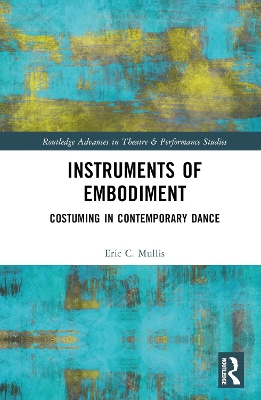Routledge Advances in Theatre & Performance Studies
1 total work
Instruments of Embodiment draws on fashion theory and the philosophy of embodiment to investigate costuming in contemporary dance.
It weaves together philosophical theory and artistic practice by closely analyzing acclaimed works by contemporary choreographers, considering interviews with costume designers, and engaging in practice-as-research. Topics discussed include the historical evolution of contemporary dance costuming, Merce Cunningham’s innovative collaborations with Robert Rauschenberg, and costumes used in Ohad Naharin’s Virus (2001) and in a ground-breaking Butoh solo by Tatsumi Hijikata. The relationship between dance costuming and high fashion, wearable computing, and the role costume plays in dance reconstruction are also discussed and, along the way, an anarchist materialism is articulated which takes an egalitarian view of artistic collaboration and holds that experimental costume designs facilitate new forms of embodied experience and ways of seeing the body.
This study will be of great interest to students and scholars working in performance philosophy, philosophy of embodiment, dance and performance studies, and fashion theory.
